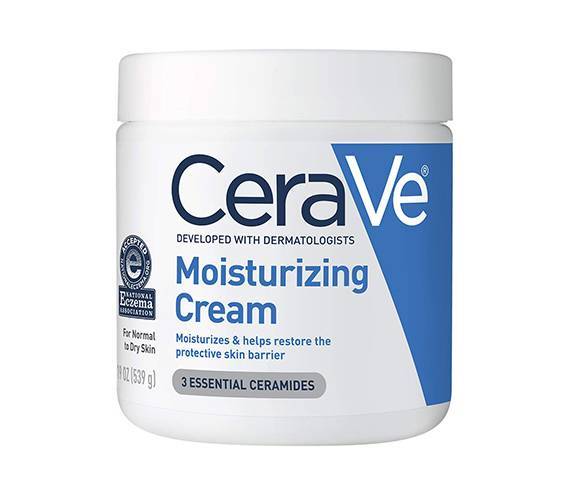How to Tell If Your Natural Moisture Barrier Is Damaged — And What to Do About It
October 15, 2021The key to healthy, hydrated skin is a natural moisture barrier. To keep it from getting weak or damaged, simply moisturizing is not always enough; your lifestyle habits can affect the moisture barrier as well. While the concept may sound confusing, there are a few simple things you can do to maintain and strengthen your natural moisture barrier. Here, Dr. Sheila Farhang, board-certified dermatologist and founder of Avant Dermatology & Aesthetics consulted with Skincare.com to share everything you need to know for achieving a more moisturized complexion.
What Is the Moisture Barrier?
In order to maintain your skin’s natural moisture barrier, you first need to understand what it is and how it functions. “The moisture barrier comes down to the health of the actual skin barrier (aka epidermal barrier), of which one function is to maintain water content,” says Dr. Farhang. “Moisture barrier health relies on a specific ratio of lipids, the natural moisturizer factor and the integrity of the actual ‘brick and mortar’ skin cells.”
She explains that a natural moisture barrier has low transepidermal water loss (TEWL). “Increased TEWL leads to dry skin and other issues,” she says.
Common Causes of a Natural Damaged Moisture Barrier
The environment is one factor that can affect your natural moisture barrier. When the air is dry (like in the winter), the moisture from your skin can evaporate faster than it would when there’s high humidity. A hot shower or any activity that strips the skin of its natural moisture can also contribute.
Another cause could be your products like “aggressive topicals such as chemical exfoliants” or those that contain potentially irritating ingredients such as sulfates or fragrance, says Dr. Farhang.
How to Repair Your Natural Moisture Barrier
“Since you can’t really change genetics or the environment, we must adjust our lifestyle and skin-care products,” says Dr. Farhang. Start by taking shorter showers with lukewarm water and patting — never rubbing — your skin dry. “Use a hydrating body wash to help the natural moisture barrier retain hydration,” she suggests.
Next, limit the use of strong exfoliants in your routine to one to two times a week, or if your moisture barrier is recovering, skip them altogether until your skin has improved.
Finally, invest in a solid moisturizer that’s free of potentially irritating ingredients. We recommend the CeraVe Moisturizing Cream because it contains ceramides to help restore and maintain the natural skin barrier, is fragrance-free and is suitable for sensitive skin.

Photo: Chaunte Vaughn
Read More:
What is Hyaluronic Acid? Everything You Need to Know About This Hydration Powerhouse
Our Favorite Moisturizers to Wear Under Makeup
The Best CeraVe Moisturizers for Dry Skin, According to a Dermatologist